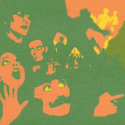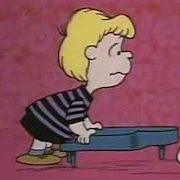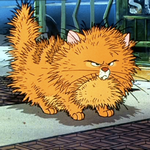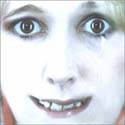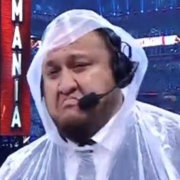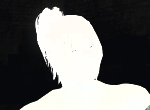|
A human heart posted:You've discovered this subforum's primary demographic! 
|
|
|
|

|
| # ? May 29, 2024 09:52 |
|
Finished The Master and Margarita by Mikhail Bulgakov last night. I didn't really get it, probably due to my lack of knowledge of Soviet Russia in the 40s. It did have a chain-smoking talking cat though, which was cool. Also, if the front matter of my edition is to be believed, Daniel Radcliffe says that this is his favorite book.
|
|
|
|
nonathlon posted:I always figure that Kindle Unlimited is for a certain type of reader. Years ago, someone who worked in publishing told me about a phrase they had: "commodity fiction". It was for books like bread or milk - people were going to buy them anyway and the actual quality was fairly irrelevant - it was like they needed a pound of reading every week, and it could have been shovelled into a bag from a stockpile of random books. At one time I worked in a book store and there was a sizeable clientele that showed up every week and bought all the new (just arrived on that day) romance novels. There were the guys that came in every long vacation looking for "just a book with a good story", who you'd steer across to the "manly men making tough decisions" section. And the people who just devoured every new SF/F trilogy. This is my father. He has a tote bag he takes to charity shops and fills with second hand books. Once the bag of books is done he goes to another store, donates them and gets another bag full. I live 1000 miles away and he knows all of the charity shops in my city better than I do.
|
|
|
|
C-Euro posted:Finished The Master and Margarita by Mikhail Bulgakov last night. I didn't really get it, probably due to my lack of knowledge of Soviet Russia in the 40s. It did have a chain-smoking talking cat though, which was cool. It took me awhile and a couple re-reads, but I love that book. The guy who gave it to me was so enthusiastic in singing itís praises that I felt like I had to put some effort into understanding it, otherwise I would have given up after the first run-through.
|
|
|
|
I gave up after Part 1, a little way into Part 2. To be a bit facetious there was a heck of a lot of world building. Reading the wikipedia summary it seems it does eventually stop spinning its wheels, but when a book portrays madness, and no-one in the book shows an ability to contend with madness, it's not going to do very much for me. For all of Part 1 there were indications it was about something, the theatre scene with people throwing out money, the apartment scene with people desperate for the apartment of someone who's just sent to an asylum, but, in many ways, while we had repeated showing of such "strange goings on" no-one tried to reckon with them. I certainly didn't, which could either be a flaw of me or a flaw of the book. When Part 2 started and we got more crazy poo poo happening, I gave up. And "crazy" is the wrong word. With madness (at least as I know it) things may appear disordered, people looking on may see the person experiencing madness as disordered (or in this book's case the world as disordered,) but the person who is experiencing madness is not so unaware of it (at least at the beginning) that they do nothing to tackle it. Sure, Part 1 might have been a mirror to society, where someone says, "This book is showing a society's madness (satire, basically,) and no-one's coping with it. Isn't our world also mad, and no-one tries to cope with it?" But that's far too cute and also absolute bollocks. If you're showing a world where no-one is seemingly able to reflect on its strangeness, where it's just presented as-is, that's worldbuilding (at best "scene setting.") And I'd had enough. The book could absolutely work for someone who places the nexus of their issues, concerns, and insanity beyond them, in the world. For someone who believes that nexus, even if caused by the world, is personal, it did nothing.
|
|
|
|
Mrenda posted:I gave up after Part 1, a little way into Part 2. To be a bit facetious there was a heck of a lot of world building. Reading the wikipedia summary it seems it does eventually stop spinning its wheels, but when a book portrays madness, and no-one in the book shows an ability to contend with madness, it's not going to do very much for me. For all of Part 1 there were indications it was about something, the theatre scene with people throwing out money, the apartment scene with people desperate for the apartment of someone who's just sent to an asylum, but, in many ways, while we had repeated showing of such "strange goings on" no-one tried to reckon with them. I certainly didn't, which could either be a flaw of me or a flaw of the book. The Master and Margarita felt like a deeply personal work to the extent that it sometimes felt uncomfortable, like I was intruding on Bulgakov's private life just by reading it. I interpreted it as a metaphor for how he saw himself as a free spirit with a vibrant inner life suppressed by living in Stalin's USSR, to which the only escape he saw was through imagination and magical thinking.
|
|
|
|
Solitair posted:The Master and Margarita felt like a deeply personal work to the extent that it sometimes felt uncomfortable, like I was intruding on Bulgakov's private life just by reading it. I interpreted it as a metaphor for how he saw himself as a free spirit with a vibrant inner life suppressed by living in Stalin's USSR, to which the only escape he saw was through imagination and magical thinking. Yeah, reading the wikipedia description of it I get the impression it address this, and personal strength and integrity, via "The Master and Margarita" in Part 2. It's just by that point I'd given up because I didn't feel Bulgakov had gained my confidence in Part 1 which felt like it was going nowhere (even if it was going somewhere.)
|
|
|
|
So I used to be a voracious reader but haven't really read anything for years until being recommended a self-published book called Constelis Voss vol. 1 by K. Leigh. It's a difficult to describe book without giving away too much of the plot, but it's like if Bladerunner was LGBTQ and written by a drunk Russian philosopher (in a good way). I highly, highly recommend any goons who like sci-fi, queer authors, or indie self-publishing.
|
|
|
|
Just finished Calvino's If on a winter's night a traveller. I really enjoyed it - Cosmicomics is definitely going on my list - but I still don't really know how to summarize it well, "metafiction about the experience of reading" feels technically accurate but undersells it a lot. The moment that stuck with me was the description of the kaleidoscope collector losing himself orchestrating an ever-growing swathe of doppelgangers and fake kidnapping plots - it's hard to read without making analogies to something (As someone studying natural language processing, the chapter where Lotaria argues for literary criticism by term frequency analysis is absolutely an attack on me personally.) overeager overeater fucked around with this message at 21:12 on Jul 8, 2021 |
|
|
|
Just finished Shantaram by Gregory David Roberts I really enjoyed it, though it has a little bit of "White Savior" thing going on, though only in certain parts as other parts leave that behind. I also am very skeptical about how much of it is real (in the authors defense, he said its a fictional novel with autobiographical elements, not an autobiography), but the story is still really good. And (not a spoiler) I totally rolled my eyes at his "I did a badass prison break because I am a badass" statement so I looked it up and sure as poo poo it was true and if anything he played it down. I will also say as a Westerner who spent a lot of time in India (especially ~15 years back) a lot of what he wrote about rang very true. I am skeptical on his "and I was the best at xyz" and "everyone loved me", but getting invited back to a village or someone basically giving you their house despite living in a slum is absolutely a thing. As for the story, writing itself I thought it was really good. He captures the "feel" of the different scenarios/environments extremely well and while his characters can get a little muddled he does a pretty good job giving everyone a unique voice. It's also a LONG book, and he fills the spaces pretty well. There is a sequel but I think I'm going to give it some time before picking that up.
|
|
|
|
Perdido Street Station by China Mieville Im very conflicted over whether I enjoyed this or not. Mieville's descriptive prose and world building is both excellent and repetitive. The characters were all mostly unlikeable except for Lin and the story very awkwardly tries to mix fantasy and horror. Mieville id obviously a very talented and imaginative writer but he repetitively describes things in a way almost as if he thinks his reader is too stupid to remember. He did the same thing in The City and the City. My biggest issue was with the characters. Lin is the only likeable character. Shes a major caharacter in the first 1/4, disappears fkr half the story and then reappears to the revelation that shes been brutally tortured, only to be saved from death and then get braindamaged. Like, why? Maybe it has some significance in the sequels. The Yag reveal at the end is even worse. The 3 'adventurer' characters were introduced so abruptly for the glasshouse mission that I immediately predicted to myself that they would die. The 'crises energy' thing was a deus ex machina that Mieville spent the first 1/4 trying to justify so that it didnt come off as one. Yet, despite these things I must have enjoyed some part of this book because its long and I breezed through it. Do the other 3 books in the series get better? Am I being unfairly critical?
|
|
|
|
TommyGun85 posted:Like, why? Maybe it has some significance in the sequels. But also overall your assessment seems reasonable to me
|
|
|
|
TommyGun85 posted:Perdido Street Station by China Mieville I enjoyed that a lot when I first read it; the absurdly unhappy ending was novel to me at the time rather than tiresome as it probably is to most people. I suspect I'd enjoy it less now, and I never got around to the other two books.
|
|
|
|
I thought the Scar was basically on the same level as Perdido Street Station. The descriptions are better, but the main characters don't have a lot of agency. Theyre mostly just on an unpleasant cruise watching cooler side characters do the actual plot. I felt like Mieville was actively choosing characters he knew would be passive, boring viewpoints as a counterpoint to the craziness of everything else. Pretty much nothing that happened in Perdido is relevant in the Scar. There's a lot of talk about saving New Crobuzon from stuff, but it's not like anyone cares. MartingaleJack fucked around with this message at 16:44 on Jul 11, 2021 |
|
|
|
BananaNutkins posted:I thought the Scar was basically on the same level as Perdido Street Station. The descriptions are better, but the main characters don't have a lot of agency. Their mostly just on an unpleasant cruise watching cooler side characters do the actual plot. I felt like Mieville was actively choosing characters he knew would be passive, boring viewpoints as a counterpoint to the craziness of everything else. The Scar was more or less the same plot as Mel Gibson's Apocalypto: nothing happens. Perdido Street Station had some cool world-building but was needlessly cruel to its characters IMO to the point of comedy. I literally guffawed at the line "Yag - you're a RAPIST!" and had a hard time finishing the last few pages.
|
|
|
|
IT BURNS posted:The Scar was more or less the same plot as Mel Gibson's Apocalypto: nothing happens. Perdido Street Station had some cool world-building but was needlessly cruel to its characters IMO to the point of comedy. I literally guffawed at the line "Yag - you're a RAPIST!" and had a hard time finishing the last few pages. Yeah, after Perdido and The City & the City, I dont think ill be reading any more Mieville no matter how good his descriptions of city infrastructure are.
|
|
|
|
The Struggle for Mastery in Europe 1848-1918 by A. J. P. Taylor is a diplomatic history of the European Great Powers during the last period of the European Balance of Power. As a diplomatic history Taylor focuses on the actions of ambassadors, foreign ministers, and monarchs but the book isn't a great man history as he frequently mentions how public opinion shaped their decisions more and more as time passed. The book was published in 1954 so a lot of the sources he used could have been superseded by additional material, but since Taylor says that most diplomats were just winging it and even says that the mark of a master diplomat like Bismarck is that they don't plan things out far in advance but respond to events by trying to delay and do as little as possible, I don't know how much has actually been changed by new archival material.
|
|
|
|
Once Upon a Time in Hollywood by Quentin Tarantino. Picked it up as I liked the movie and the book had good reviews. Overall pretty decent, most of the material wasn't in the film or expands on interesting scenes to add more detail. The book wouldn't make much sense if you haven't seen the movie. Best parts were chapters that felt like deleted scenes. Way more of Pacino's agent character planning Rick switching to Italian movies, and my favorite part were the plot details about the new cowboy TV show Rick had been cast in. Downside is while some trivia about 1960s cinema is interesting Tarantino gets self-indulgent and characters go on for pages listing obscure casting decisions and details of German movies awkwardly that doesn't fit their voice and felt like reading Wikipedia entries. A little bit is ok but this was too much of the page count, I'm guessing editors had a light touch. Rick and Cliff work great on screen as you have Leo and Pitt bringing their charisma and elevating the material but on the page they aren't as interesting. Rick is just a cowboy actor going to a new role and while I did like learning more about what he did after the movie there is nothing about his personal history like where he grew up or what he did before acting. Cliff is bizarre and comes across as a Brock Samson figure. Pitt played him as a roguish charmer who didn't seek fights but in the book he's a sociopath. Had body count in the hundreds during WWII and got the highest medal twice, not a hint of PTSD or war injuries as he becomes a stuntman, every woman wants him and he can't fail at anything, sometimes murders people but is too smart for the cops. Even little stuff about Cliff made no sense like he wins a small fortune gambling and despite being employed and living frugally, a short time later he mentions eating mac & cheese because he can't afford better. Overall a quick read if you liked the movie but not essential.
|
|
|
|
I finished The Unnamable by Samuel Beckett this morning. The first, maybe fifth of it was difficult to get through. It was a constant stream of subjectiveness, questioning, roundabout thinking. There was never a truth to it, or anything solid in the narrative you could latch onto as an object, something firm and real that isn't questioning the reader (or narrative, or author.) As the book went on, being that I was lacking in insight as to what it was about, I decided the book was about being a book. Looking back, this makes sense. Often at the start of a book an author is figuring out what the book is about, or where it's going, or what its voice, narrative, or "plot" will be. Editing should take that out of a story, but in this it didn't. Not because the book is trying to be difficult, but because the book is simply being a book, as presented in all it's book-ish-ness. About halfway through I realised (some of the things that informed my just-written post-hoc commentary on the first 20% and) that the book is living in reverse. At the start we have a death, then by end we have life. The book involves the reader. If writing something that is to be published (and so reach a final(-ish) state) the writer must kill the idea they have floating around their head. Every word they write kills off the feeling, and possibility, of what they were thinking about. No writing can really capture the totality of "a thought." (Given language, feeling, percepting, being aware of, and countenancing the thought can't capture the thought.) So the book, in being written, is a death sentence for the the totality of what is possible from before its beginning. The book/text is aware of this, and grapples with this, that it is less than what it could be by taking a form in being what it is. By the end I was fully convinced (which is to say I believed in what I was thinking) that the book was in argument with itself. It's a book that was annoyed it had to be written, that all its possibilities in not being written were ended by being written, and it expresses its annoyance in its bookish form (lots of words.) It had to keep going on, until the point it became a book, and satisfaction was met between author, presumed reader, (editors and publishers,) and text. The text was mostly referring to itself, as much as a book conscious of being a text can refer to anything but itself. Ending on the idea that the book must go on (and by ending I mean the book ended, it didn't go on) the book realised that it exists elsewhere. It's formulated by the author, by the reader (me, as I'm doing,) and is only itself in not being itself, because itself can't fully comprehend itself, only continue with the reckoning of itself, until its satisfied, or dead, or has forgotten about itself, and can maybe, through implication, consider it exists in this post I'm making, in my thoughts, and in other readers' thoughts. The Unnamable is a book annoyed it has to exist, but having to exist it just gets on with things. If you've ever said, "Damnit Mom! I didn't ask to be born!" then this is your answer, because having being born you really have no choice in having existed.
|
|
|
|
I just finished Out by Christine Brooke-Rose, as in just a few minutes ago so these are fairly raw thoughts. The most striking thing about the book is how it deals with perception (and it frequently refers to perceiving phenomena.) It denies the existence of history, in many places, at least the accessibility of history. There are a huge amount of "resettled" people in it, and when asked their former occupation they never settle on one thing, what they say changes over, and over, and over, and all are true for some degree of truth. In denying the accessibility of history, it's saying we can only exist in the now. This is handled really well, as passages in the book are repeated often, with small changes, over, and over, and over. If they're memories (to the reader) even though they're happening in "the now" they show "the now" can warp memory, can perceive new things in the memory, and for "the now" the memory is not wrong or changed, it just is. As a book it's hard to piece together its through-line, except via "the now" that constantly brings up the past. By repeating passages we're allowed to/forced to identify that the truth of the matter is never assured, except as experienced, which when examined can never again be the same "truth of the matter." Reflections come up too, or dualities, experiencing another as yourself, experiencing your reflection as another's, and desire or lust being the driver of this, a wanting to live and experience, perhaps, the other. The whole book is premised on the "Western World" becoming "the other." And it says you/they/it are not any less in being so, it is just a matter of one reality. The book presents living as a sickness, growth as a cancer, but one where we continue on experiencing things and this cancer as entirely natural. By the end of the book it collapses into an unreality, the cancer has become terminal, the medicine (living) the thing causing the cancer. In unreality it says this is just as much a "reality" as anything else. It's comforting to see someone address this, not quite in a "look on the bright side of things" but saying looking at any side of things is what's valued. (Perhaps it's very privileged in saying experiencing is what's valued, and not coming from a place where experiencing is insufferable.) Maybe it's just what I've been reading recently (Gravity's Rainbow, The Unnamable, now Out, all of a similar vintage) and my frame of mind that views them as incredibly existential novels in the way they prioritize "the real" by showing we are often dealing with a lack of understanding, but that's the beauty of it; we continue; we exist; some say we exist within a world and some say we exist within ourselves, both true. To have a full appreciation of anything would turn both it and your perception of it, perhaps even you (as the books are very much about "you" and how "you" deal with them) into an object. Finite, not in the sense of having an end, but in being limited and having the ability to be known. Out says your knowing changes, if you're living. Gravity's Rainbow says despite some amount of knowing and not knowing, and knowing "knowing" leads to a "paranoid" (everything is linked) view of the world, we have to content ourselves with our roles, even if contenting ourselves is by deluding ourselves into a role, for a while, except when we don't. And The Unnamable says some day we won't know, or be known, but having begun to know, and be known, we have no real choice in the matter. All three are great books, and I'd recommend each of them.
|
|
|
|
I read Blue Highways: A Journey Into America by William Least Heat-Moon. The author spends 1978 driving through 31 out of 48 continental states, and he chronicles the adventures that pass as he drives down backroads to see the country outside of the cities and interstates. He sees many towns with interesting local character, gets to know a few dozen locals from all over, and even has a few hitchhikers along the way. All along there's a real sense of the deep-time history of the land, coupled with an elegiac feeling that the old country is in the process of dying out, and . The book has a such wonderful spirit to it that I would recommend it to any American, and any foreigner who has interest in the country.
FPyat fucked around with this message at 14:44 on Jul 20, 2021 |
|
|
|
FPyat posted:I read Blue Highways: A Journey Into America by William Least Heat-Moon. The author spends 1978 driving through 31 out of 48 continental states, and he chronicles the adventures that pass as he drives down backroads to see the country outside of the cities and interstates. He sees many towns with interesting local character, gets to know a few dozen locals from all over, and even has a few hitchhikers along the way. All along there's a real sense of the deep-time history of the land, coupled with an elegiac feeling that the old country is in the process of dying out, and . The book has a such wonderful spirit to it that I would recommend it to any American, and any foreigner who has interest in the country. That's been on my to-read list for a while, along with PrairyErth. Has there been any books with this concept revisited in recent history? I imagine the backroads and small towns of the US have changed a lot since 1978...
|
|
|
|
bowser posted:That's been on my to-read list for a while, along with PrairyErth. Has there been any books with this concept revisited in recent history? I imagine the backroads and small towns of the US have changed a lot since 1978... There was Blue Highways Revisited, which collects many photos of the same places and people Heat-Moon visited 30 years after the book was published. I also know of In America: Travels with John Steinbeck, a Dutch travel writer's experiences travelling the country.
|
|
|
|
FPyat posted:I read Blue Highways: A Journey Into America by William Least Heat-Moon. The author spends 1978 driving through 31 out of 48 continental states, and he chronicles the adventures that pass as he drives down backroads to see the country outside of the cities and interstates. He sees many towns with interesting local character, gets to know a few dozen locals from all over, and even has a few hitchhikers along the way. All along there's a real sense of the deep-time history of the land, coupled with an elegiac feeling that the old country is in the process of dying out, and . The book has a such wonderful spirit to it that I would recommend it to any American, and any foreigner who has interest in the country. Jim White's movie "Looking for the Heart of the Wrong-eyed Jesus" follows a similar idea - going all the places people don't go - and features a banging Americana soundtrack too. Feel the are one or two other similar music centric films.
|
|
|
|
I read a few darker sci-fi novels, including Titanicus by Dan Abnett and Prador Moon by Neal Asher, so I thought I'd read a light fluffy historical romance (The Miser of Mayfair by MC Beaton) as a palate cleanser. Jeez, was that a mistake - it was packed with references to suicide and domestic abuse, and the heroine was almost raped on three separate occasions. The books about chaos demons and giant crabs ripping people to pieces were far less unsettling.
|
|
|
|
Recently finished We Few and Whispers in the Tall Grass (finally - work had caused some delays with time for reading) by Nick Brokhausen the other day. It was a very insightful look into the world of MACV-SOG personnel during the Vietnam war - they really were pitched against increasingly unbeatable odds! Their close relationship with the air force pays dividends though, as they're the sole link that allows the teams to get out of combat in one piece, as well as keeping the NVA off their backs, with many many air strikes. It's also interesting to read about all the many shenanigans and hijinks they get up to during the often-brief windows between missions, as well as how they're able to get away with it! (No doubt in large part due to the importance of their missions allowing their CO to sweep issues under the rug, such as the fact that the teams tend to steal a great many vehicles and equipment from other parts of the military) But now though, I've just started V for Vendetta for a complete change of pace - so we'll see how that goes
|
|
|
|
Just finished Low Flying Aircraft by J. G. Ballard, a collection of short stories set near to just just post apocalypse, all of which figure aircraft in more or less important roles. Its pretty dated largely being written in the 60s and published in the early 70s, but some of it is pretty prescient. The writing is uneven, and I had a hard time with the pacing of a few of the stories, but some were loving fantastic. Die hard scifi readers interested in "classic" writers should give him a try if they have not before.
|
|
|
|
|
Firearms: A Global HIstory to 1700 by Kenneth Chase. Despite the title it isn't as wide ranging as it sounds. The book is actually about answering one question: Why did Europe perfect firearms when China invented them? The short answer is geography. The slightly longer answer is that Western Europe and Southern China were both well suited towards the use of firearms but while Southern China was politically subordinated to Northern China and saw its resources used to fight steppe nomads, against whom guns weren't that useful, the resources of Western Europe weren't used to defend Eastern Europe in the same way so they could keep fighting each other and refining the technology.
|
|
|
|
Finished Andy Weir's Project Hail Mary. I know this was covered by some others, but figured it might be somewhere on other people's summer reading list. I read "The Martian" and didn't read Artemis as I heard it was not very good. I didn't like Hail Mary as much as The Martian, but I did think it was still good and I don't think it is as derivative as its made out to be. The main character is very Mark Watney and there is a similar sense of "solve big problem with very limited resources", but Hail Mary is a much higher sci fi concept and the focus is far less on engineering challenges (HM has some pretty big Deus Ex intervention in that regard). Its more like Andromeda Strain in space but with a amnesia device that is mostly for story-telling purposes to get the narrative out of the bottle as he "remembers" the past few years, and a pretty big sci fi twist that I won't ruin as the lead-up is very cool but dominates the majority of the book. The Martian is better and should be read first if haven't but if you liked that story and want to read something in that genre with a similar main character, but a different story/goal/etc then I would recommend Hail Mary. I hear they are making a movie of this already which I think will be quite a bit more difficult than The Martian. I'm guessing they are going to Hollywood over a lot of the harder sci fi stuff. Lockback fucked around with this message at 18:51 on Aug 1, 2021 |
|
|
|
Just finished Central Station by Lavie Tidhar. Its a quasi cyberpunk, fantasy future where humanity appears to be making an evolutionary step, and AIs are waiting for them. Very well written characters set in a place not commonly the center of Scifi--Tel Aviv/Jaffa. A lot of space is left to explore for future works in this universe.
|
|
|
|
|
Finished Trollslayer by William King. Warhammer, particularly 40k, is a pretty big turnoff for me but this was fun fantasy schlock. A collection of incredibly violent short stories that remind me a little of old Conan stuff. I enjoyed it enough but upon further inspection I discovered there are like a dozen more entries in the series which blows my mind The Postscript Murders by Elly Griffith. I have a soft spot for junky British mystery fiction, but I enjoyed this one a great deal less than most od her other recent work. A very implausible plot ran against particularly bare prose and there was not a good result
|
|
|
|
I just finished the Traitor Son series by Miles Cameron, which was like a combination of K.J. Parker, Christopher Buehlman, and Glenn Cook. A mercenary company meddling in fights between magical powers, but also Catholicism, with carefully detailed descriptions of armor and tactics. He also writes historical fiction (which I havenít read), so he appears to know his stuff.
|
|
|
|
AngusPodgorny posted:I just finished the Traitor Son series by Miles Cameron, which was like a combination of K.J. Parker, Christopher Buehlman, and Glenn Cook. A mercenary company meddling in fights between magical powers, but also Catholicism, with carefully detailed descriptions of armor and tactics. He also writes historical fiction (which I havenít read), so he appears to know his stuff. Huh, now that sounds interesting! I loved reading The Black Company by Glenn Cook, and like reading all the details about armour/weaponry and tactics, in this kind of book. Is the first book in the series fairly self-contained, out of curiosity? Either way, I'm tempted to get that and see how I go, once I finish my current book.
|
|
|
|
AngusPodgorny posted:I just finished the Traitor Son series by Miles Cameron, which was like a combination of K.J. Parker, Christopher Buehlman, and Glenn Cook. A mercenary company meddling in fights between magical powers, but also Catholicism, with carefully detailed descriptions of armor and tactics. He also writes historical fiction (which I havenít read), so he appears to know his stuff. I really enjoyed this series... up to a point. It's not even Cameron's fault! I was listening to them via audiobook and for some reason or other they changed narrators after the 2nd one from a really exceptional narrator to one that was... significantly less exceptional. It's a sad loss because the first two really are an excellent mix of gritty realistic detail and fantastical elements.
|
|
|
|
I bounced off the first one because dude just kept introducing new POVs several times per chapter.
|
|
|
|
Sinatrapod posted:I really enjoyed this series... up to a point. It's not even Cameron's fault! I was listening to them via audiobook and for some reason or other they changed narrators after the 2nd one from a really exceptional narrator to one that was... significantly less exceptional. It's a sad loss because the first two really are an excellent mix of gritty realistic detail and fantastical elements. At one point I was doing a lot of driving and I occupied the time in the car by listening to audiobooks. After a while, you really got to know the different narrators. There was one, I think it's the actor English actor Martin Shaw, who would always give the hero these deep growling voices and the villain an effeminate mincing tone. Every time. After the first times it just got distracting. Then it got downright irritating, like what are you trying to say here?
|
|
|
|
Major Isoor posted:Huh, now that sounds interesting! I loved reading The Black Company by Glenn Cook, and like reading all the details about armour/weaponry and tactics, in this kind of book. Is the first book in the series fairly self-contained, out of curiosity? Either way, I'm tempted to get that and see how I go, once I finish my current book.
|
|
|
|
Flashback by Dan Simmons is one of those "In the not so distant future everything in America has gone to hell because of Obama" books that conservatives wrote during his presidency. I read it because while I've never read anything of his I've heard how well regarded his work like the Hyperion Cantos is. I hoped that, coming from a real author, this one wouldn't be a slog to get through. And when it wasn't being a right wing screed it was decently written. There's a sci-fi detective story about an ex-cop being hired to solve a cold case murder because he's addicted to the titular drug that allows you to relive past experiences and worked on the case before being fired for his addiction that serves as the plot which held my interest, but then that plot comes to a halt while Simmons tells you that anthropogenic climate change is a hoax, that Muslims breed like rabbits and destroy whatever country they become the majority in, that welfare states are doomed to inefficiency and bankruptcy, or whatever else he wants to complain about. There's also very little about the setting that's integrated into the story, for example the main character's son, one of the two other POV characters, mentions that everyone learns the Qur'an in school now and about how Islam is a religion of peace but it never comes up again. You'd think at the very least there'd be some Arabic loan words making their way into slang or something like that but it has no bearing on the plot or characterization. I could go on, but just avoid the book. Do not recommend.
|
|
|
|
Lockback posted:
This is true. Project Hail Mary started off interesting, but got less so the closer the elements got to The Martian. I really liked Rocky and their interaction. The problem with Andy Weir novels is they all feel like they were designed backwards. Like, this is where I want to end up, so what obstacles do I need to overcome, and Iíll set those up, which you also mentioned as big Deus Ex moments. They are there in the Martian, too, but they seem more obvious in PHM. I just finished In the Garden of Beasts by Erik Larson. I loved this Devil in the White City. Garden is the story of the US ambassador to Germany as Hitler is consolidating his power. This was less personal than that story, even though he was working from their letters and diaries. I felt closer to the people in Devil than Garden, but it was still fascinating and frustrating. We have the benefit of hindsight now, but man itís hard to read about the lengths people would go to rationalize normal relations with Germany or the handwave the treatment of the Jews. At least until you start to consider some recent events. Itís a slight recommendation for those that enjoy Larsonís writing, or are interested in a more narrative take on this time period.
|
|
|
|

|
| # ? May 29, 2024 09:52 |
|
I recently finished Alexander II: The Last Great Tsar by Edvard Radzinsky. Radzinsky certainly knows his history, but he's also trying to portray himself as a neutral historian when he's not. If I had to sum up his viewpoint I'd peg it as "anti-revolutionary sentimentality". The text is fine with focusing on Alexander's reform efforts, but he spends too little time talking about the working classes they were supposed to serve or quite why the revolutionaries were the way they were. It's a work of palace politics, of the office of the tsar at the top, rather than a work using that tsar as a focal point in a larger system.Dr. Pangloss posted:I just finished In the Garden of Beasts by Erik Larson. I loved this Devil in the White City. Garden is the story of the US ambassador to Germany as Hitler is consolidating his power. This was less personal than that story, even though he was working from their letters and diaries. I felt closer to the people in Devil than Garden, but it was still fascinating and frustrating. We have the benefit of hindsight now, but man itís hard to read about the lengths people would go to rationalize normal relations with Germany or the handwave the treatment of the Jews. At least until you start to consider some recent events. White Coke posted:Hyperion Cantos
|
|
|










